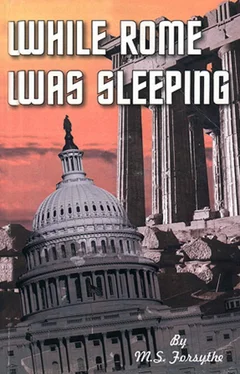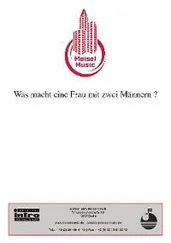“After George’s service tomorrow, Fred, remember 1:00 PM… I think he’d like you to be there,” Neil iterated gently.
“Of course I will be there; how about Thursday?” Fred persisted.
“Yes, I’ll clear my calendar. I’m very interested in this breakthrough; what do you expect to get from T. R.?”
“He may be able to answer a couple of questions that some information in the packet raised,” Fred explained. I think some pieces that are beginning to make sense. In the meantime I’m going to run a couple names through Interpol.
I’ll see you tomorrow, Neil,” Fred said soberly.
* * *
Seattle, Tuesday Evening
Jack and Andrew had finished dinner and as Andrew began to clear the table, Jack offered pleasantly, “Let me help Andy, I’m pretty good at the scullery ‘stuff’.”
Commenting, Andrew said, “I note that you’re obviously feeling better since your time with Ben. Sorry, I’m not trying to pry…”
Jack cut him off saying, “It’s okay, Andy. You were right about Father Ben. He and I did have a good session; I’m ready now to tell you the rest of the story about my time with George Kelshaw.
Jack began, “When we met with Vang Pao the information George got about the rogue agent answered a lot of the questions he had about what had happened to Thayer and Chernakov.
“Kelshaw was determined to stay on the trail of this guy and decided that I should go back to Vientiane to write about our time with Vang Pao and let Klein know what was going on.
“We started out with two Meo guides and twenty four hours later were about to part company when we were captured by the Pathet Lao. This time there was nobody around to help us. The two Meo guides got away fortunately; they were able to let the General know what had happened. I won’t go into the details of my time as a prisoner, Father Ben can fill you in on that; I guess I was held for about six months. I kind of lost track of time—until I was rescued by Vang Pao’s people.
“After I was rescued I found out that George was still alive; the Hmongs were keeping track of him and reporting his condition and location to Vang Pao. Occasionally, there would be information for me to pass on to Klein.”
Andrew was staring at Jack in amazement, “Captured! You were a prisoner? My God, Jack, why didn’t you tell me? You poor guy! I never dreamed…” Andrew was shaken.
“Its okay, Andy,” Jack stated simply, “I’m all right; well almost… it’ll just take some time.”
“Yeah, that’s what they say, time heals all…,” he mumbled half cynically. Then appraising his friend said, “I can’t tell you how sorry I am, Jack; it’s all right if you don’t want to go on with the story.”
“I do want to. It’s important to me that you know, Andy, and I think it may help you a little to understand George Kelshaw’s character. He was a prisoner in Laos and North Vietnam for nearly five years before he finally got away. He had had one other opportunity to escape, but he stayed; he was learning a lot about what was happening to our POW’s and about the double agent and he was able to get information out.
“The NVA troops and the Pathet Lao moved the POW’s around a lot. It was a miracle in some ways that Kelshaw survived; he had gotten malaria along with being badly treated.
“The Hmongs managed to help him and he ultimately escaped in early 1978—from a road construction crew where he and some other POW’s were working as forced laborers.
“When we reconnected in Bangkok George was very sick. He was brought to me by a Chinese man who was a merchant seaman, named Lu Chan. I suspected at the time he was CIA or a political defector of some kind. Anyway he was very sharp and very protective of George. He and Kelshaw were afraid they could have been followed so we kept George under wraps until he was stronger.
“He told me that he had been moved as many as four or five times a month. He along with other POW’s, some of whom were French, were being used by the North Vietnamese as slave laborers. They were moved back and forth from Laos to North Vietnam and back to Laos. They had them working mostly at repairing roads and bridges.”
Andrew listened and said, “That’s why we didn’t get some of our POWs back, isn’t it?”
Jack nodding, “Yes, partially, and there is more…”
“Andrew questioned. “Why were the Pathet Lao and the North Vietnamese shifting these guys back and forth?”
“Kelshaw said the North Vietnamese and the Pathet Lao, controlled the prisoners, but there were some Chinese handling the POWs too; they moved them around to avoid detection, plus they were providing the labor to a large international company known as GCI or Global Construction International.
“When George saw the GCI building in Bangkok he became obsessed—even as sick as he was, he was determined that he was going to gain access to GCI and do some investigating.”
“Why?” asked Andrew.
“While he was still on the road crew, one of the heavy equipment operators started talking with Kelshaw and another prisoner; they found out the fellow was Dutch, but that the company he worked for, GCI, wasn’t; that it was a multinational company.
“Kelshaw found out that GCI received material, money and contracts from everywhere including the United States. George said the guy laughed over the idea of an embargo.
“It was then that Kelshaw planned to escape—he used his malaria as a way of pretending to be too sick to work. Maybe the guards thought he would die or hoped he would anyway they just ignored him. One night with the help of one of the Hmong that had been faithfully tracking him, Kelshaw got away. He made it to Vientiane where he connected with the Chinese guy who brought him to me in Bangkok.”
Andrew was silent; thinking how superficial his concerns about Jack’s professional neutrality had been after hearing not only George Kelshaw’s story, but Jack Hubbard’s as well.
Jack continued, “Kelshaw couldn’t let go of the idea of an international company like GCI, making deals with countries like North Vietnam and Laos to do business in defiance of a major embargo and using captured prisoners of war as slave labor. He was furious when he saw the Bangkok GCI office building; I think that’s when he decided he would break in. And that’s what he did.”
“Back up, Jack, you mentioned money and contracts, what kind of contracts?” Andrew asked.
“Contracts with various governments for everything—all kinds of material, equipment and building supplies, you name it and GCI would negotiate, get what was required and build it.”
Andrew was puzzled, “How could North Vietnam and Laos afford a company like GCI when they had their hand out to the U.S. for dollar reparations to rebuild their countries?”
“Andy, this was and is an investment for GCI… and believe me the stakes are high. Natural resources of those two countries alone stood to put lots of money in everybody’s pockets, as Kelshaw found out.
“He managed to get the right uniform and a fake ID and got into the building unnoticed. He hid out until the building was nearly empty and then broke into the contracts and accounting offices. The Chinese guy had provided him with a small camera and he took some very nice pictures; pictures of GCI financial records and business transactions, of correspondence, money transfers and contracts for laborers between GCI and Laos and North Vietnam.
“Kelshaw was certain and I believed him, that those were contracts to use POWs as a labor pool. Best of all, George filmed a log book of business consultants by country including the good ole’ USA.”
“What happened to the film, Jack?” Andrew pressed.
Читать дальше












